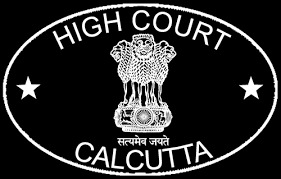S.S. Nijjar, J.@mdashThis petition under Articles 226/227 of the Constitution of India seeks issuance of a writ in the nature of certiorari quashing the order passed by the Presiding Officer, Labour Court, Gur-daspur (hereinafter referred to as ''the Labour Court'') on 14.11.2000, accepting the application of respondent No. 2 (hereinafter referred to as ''the workman'') u/s 33C(2) of the Industrial Disputes Act, 1947 (hereinafter referred to as ''the Act'') and directing the petitioner-Punjab State Civil Supply Corporation Ltd. (hereinafter referred to as ''the Management'') to release the amount of Rs. 1,06,529.50 as claimed by the workman, within three months failing which the workman shall be entitled to 12% interest on the same from the date of the order.
2. The petitioner-Managment is a statutory Corporation and falls within the definition of ''other authority'' as given under Article 12 of the Constitution of India. The workman joined the Management as a Shop Assistant on 1.10.1977. He worked in this capacity upto Fer-buary 24, 1987. The designation of Shop Assistant Grade-1 was changed to Public Distribution Clerk (hereinafter referred to as PDC). The Management by its letter dated 12.1.1987 sought consent of Assis-tant/PDC to work as Accountant as about 40 posts of Accountants in various districts were lying vacant. It was proposed to utilise the services of PDCs, PDHs or Assistant/Clerks who were graduates and having accounting experience. It was made clear that their services will be required for short terms basis; at least till the time some regular arrangement is made to fill in these posts. This letter was addressed to all the District Managers directing them to send the names and particulars of qualified officials for consideration of their posting as Accountants. The District Manager, Gur-daspur, where the workman was working as PDC, sent vide its letter dated 22.1.1987 a list of four officials who were qualified for being posted as Accountant. The name of the workman appears at serial No. 1 in the aforesaid letter. By order dated 18/19.2.1987, ten officials were post to work as Accountant in their own pay scales on purely short term basis and without any additional remuneration. The order also stated that they will not have any semblance of promotion. The name of the workman appears at serial No. 7 of this order. Consequently, the workman joined on the post of Accountant on 25.2.1987. He continued to work on the post of Accountant till 9.8.1996, when he was posted to his original post of PDC. In the meantime, the workman had made an application for grant of regular pay scales for the period he had worked on the post of Accountant. This application was rejected. Hence, he made an application u/s 33C(2) of the Act seeking to recover an amount of Rs. 1,06,529.50 as difference of wages for the period from 1.3.1987 to 31.5.1996.
3. After completion of the pleadings, the Labour Court framed the following three issues :-
"1. Whether the application is not maintainable as alleged in the p.o. of W/S ?
2. Whether the applicant has no existing right to sustain the claim ?
3. Whether the applicant is entitled to the amount claimed in the application ?"
4. Issues Nos. 1 to 3 being interconnected, have been taken together for discussion. The Labour Court has decided all the issues against the Management. It has been held that the Management has not been able to prove that there was any implied consent given by the workman for working on the post of Accountant without any remuneration. It has also been held that there is nothing on the record to show that the Head Office had required a clear consent from the officials for not claiming the scale of Accountant. The Labour Court has also held that in view of the settled law, the workman cannot be deprived of the remuneration on the post of Accountant having worked on the same. In support of its finding, the Labour Court has relied on three unreported judgments of this Court rendered in C.W.P. Nos. 4626 of 1993, 13120 of 1993 and 17902 of 1996.
5. Mr. Ghuman appearing for the Management has submitted that the Labour Court has wrongly entertained the application u/s 33C(2) of the Act as the service conditions of the workman are governed by the statutory service rules. He has submitted that the workman was entitled to challenge the action of the Management by filing the departmental appeal. In case, the same had been decided against him, the workman would have had the remedy of approaching this Court by way of writ petition under Articles 226/227 of the Constitution of India. In support of this submission, learned counsel was relied on the judgment of the Supreme Court in Bombay Telephone Canteen Employees'' Association v. Union of India AIR 2997 S.C. 2817 : 1997(3) SCT 498 (SC). However, Mr. Na-mit Kumar appearing for the respondent-workman has pointed out that the aforesaid judgment has been specifically overruled by the Supreme Court in a subsequent judgment in the case of General Manager Telecom v. S. Srinivasa Rao 1998(1) SCT 230, In that case, it has been held that the decision rendered in Bombay Telephone Canteen (supra) is in direct conflict with seven-Judge Bench decision in the case of
6. Such being the position of law, it would not be possible to accept the submission made by the learned counsel for the Management. Application u/s 33C(2) of the Act was clearly maintainable. It is also not possible to accept the submission of the learned counsel to the effect that the workman having consented to work in his own pay scales cannot be granted the benefit of higher scale of Accountant. A perusal of the award clearly shows that the Management has miserably failed to show that the workman had given any consent to work in his own pay scale. In fact, perusal of the various letters which were exchanged between the Deputy Manager (Administration) with the District Manager clearly show that a direction had been issued to the District Manager to send the list of all the officials having accounting experience so that they could be posted as Accountant. It was necessary because 4o posts of Accountants were lying vacant. A perusal of Annexure P.2 also shows that the District Manager forwarded the name of the officials who were eligible to work for the post of Accountant. Annexure P.3, dated 16.12.1987 is an order appointing the workman alongwith others on the post of Accountant. No doubt this orders says that the official will work as Accountant in his own pay scale but the same cannot be read to mean that the workman had given consent to work in his own pay scale. There was no categoric request made to the workman to give an option to work in his own pay scale. This was a wholly unreasonable and arbitrary condition unilaterally imposed by the management on the workman. Even otherwise by now, it is a settled position of law by a catena of judgments of the Supreme Court as well as of the High Courts that the official who is asked to work on higher post even in officiating capacity has to be paid salary of the higher post. In this view of mine, I am fortified by the observations of the Supreme Court in the case of Secretary-cum-Chief Engineer, Chandigarh v. Hari Om Sharma 1998(3) SCT 90 and Selvarj v. Lt. Governor of Island, Port Blair and others 1998(4) RSJ 22. In these cases, it has been categorically held that even if any person is asked only to officiate in higher post, the authorities are duty bound to pay the scale of higher post for the period spent by the official on the higher post. In Hari Om Sharma''s case (supra), the Supreme Court has observed as follows :-
"Learned counsel for the appellant attempted to contend that when the respondent was promoted in stop-gap argument as Junior Engineer-1, he had given an undertaking to the appellant that on the Basis of stop-gap arrangement, he would not claim promotion as of right nor would he claim any benefit pertaining to that post. The argument, to say the least, is preposterous. Apart from the fact that the Government in its capacity as a model employer cannot be permitted to raise such an argument, the undertaking which is said to constitute an agreement between the parties cannot be enforced at law. The respondent being an employee of the appellant had to break his period of stagnation although, as well have found earlier, he was the only person amongst the non-diploma holders available for promotion to the post of Junior Engineer-I and was, therefore, likely to be considered for promotion in his own right. An agreement that if a person is promoted to the higher post or put to officiate on that post or, as in the instant case, a stop-gap arrangement is made to place him on the higher post, he would not claim higher salary or other attendant benefits would be contrary to law and also against public policy. It would, therefore, be unenforceable in view of Section 23 of the Contract Act."
7. In the present case, it is nobody''s case that the workman had been appointed on the higher post in order to show any special favour of the workman. The services of the workman, as also the other officials who were appointed alongwith him, were required on the posts of the Accountant, in the interest of the Corporation. In such circumstances, I am of the considered opinion that the action of the Corporation in denying the wages of higher post is not only unreasonable but wholly arbitrary. It goes without saying that the Corporation and other instrumentalities of the State are expected to behave like Model employers. They are not expected to behave like an Industrialist in the private sector. This apart, I am of the considered opinion that it would not be possible to interfere with the order as the findings on the facts recorded by the Labour Court are based on evidence. This Court while exercising jurisdiction under Articles 226/227 of the Constitution of India does not sit as a Court of appeal over the findings of fact recorded by the Labour Court. This Court exercise only supervisory jurisdiction which is exercised for interfering with an award which suffers from an error apparent on the face of the record. No such error apparent on the face of the record has been pointed out.
8. In view of the above, I find no merit in the writ petition and the same is hereby dismissed. The petitioner is directed to make the payments to the workman, in accordnace with the order, within a period of four weeks from today.
9. Petition dismissed.

